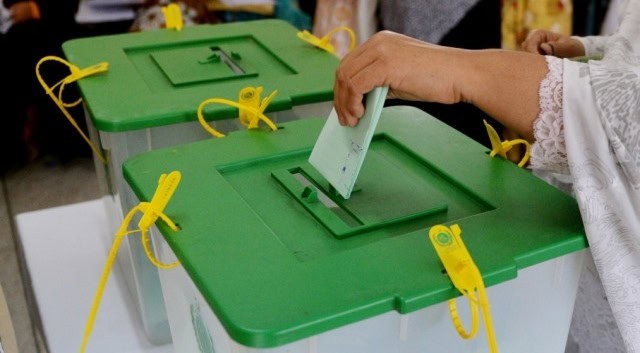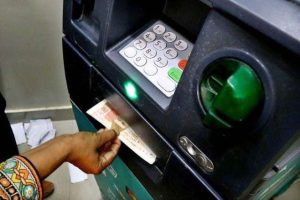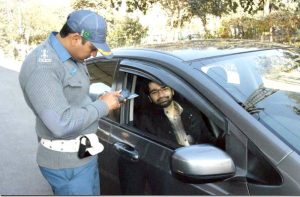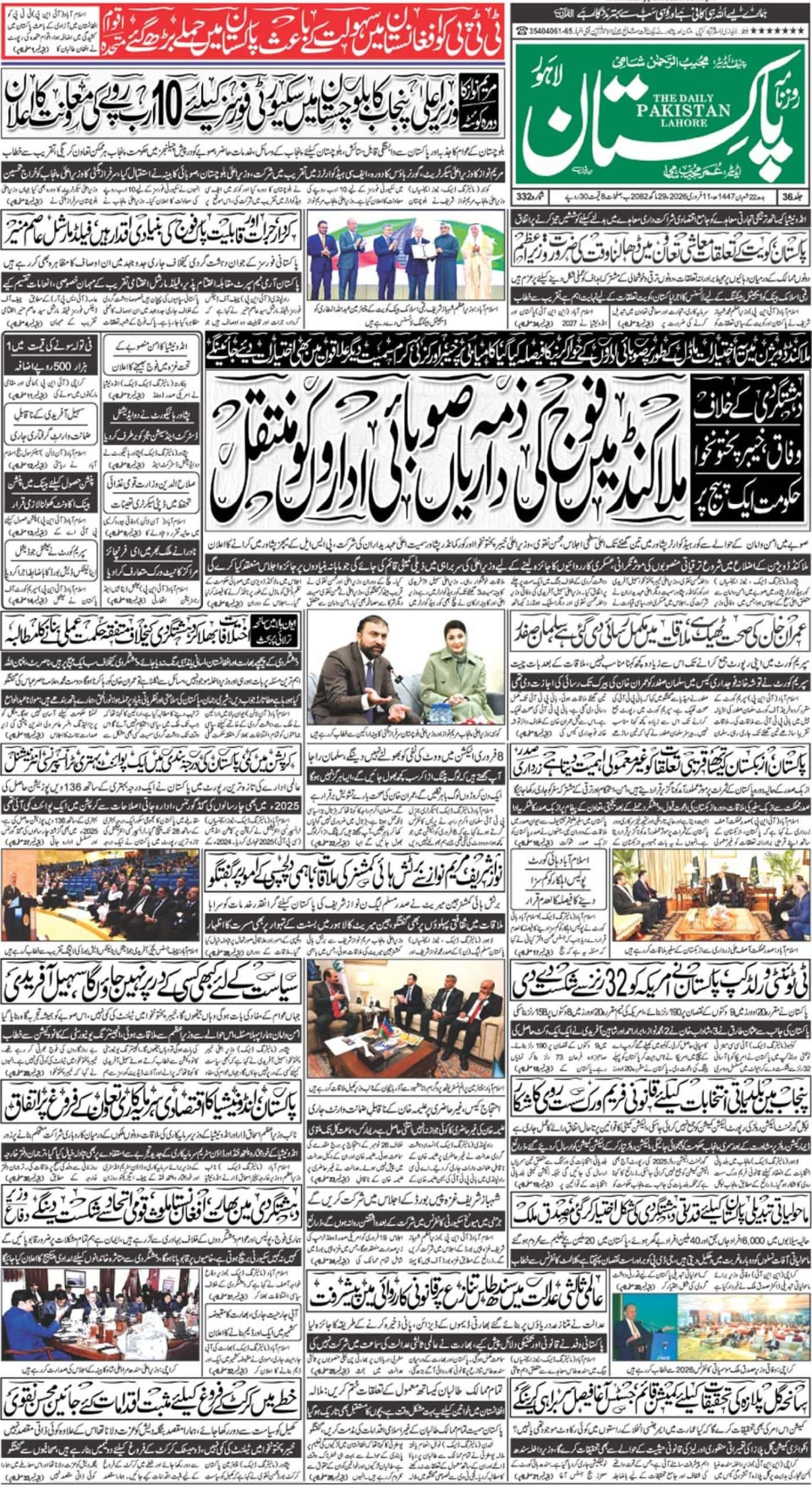ISLAMABAD – The ruling Pakistan Muslim League-Nawaz (PML-N) enjoys a clear lead in the number of seats in the Senate after Saturday’s elections, according to unofficial results.
The Pakistan People’s Party (PPP), which earlier enjoyed a majority in the Upper House, follows close behind in the number of seats won.
On the other hand, Pakistan Tehreek-e-Insaaf (PTI) has managed to improve its position in the Senate.
The time for polling process for election of 52 Senators from all the four provinces, Federally Administered Tribal Areas (FATA) and the federal capital ended at 4pm.
A total of 131 candidates were in the run for the elections, the polling for which started at 9am in the provincial assembly halls and the parliament house Islamabad.
Unofficial results announced so far:
| Punjab | Sindh | Balochistan |
| Maqbool Ahmad (PML-N backed IND) |
Raza Rabbani (PPP) |
Ahmad Khan (IND) |
| Haroon Khan (PML-N backed IND) |
Moula Bakhsh Chandio (PPP) | Anwalul Haq Kakar (IND) |
| Hafiz Abdul Karim (PML-N backed Technocrat) |
Mustafa Nawaz (PPP) | M. Akram (National Party) |
| Ishaq Dar (PML-N backed Technocrat) | Anwar Lal Din (PPP) (minorities seat) |
Sadiq Sanjrani (IND) |
| Asif Kirman (PML-N backed IND) |
Sikand Mandhro (PPP Technocrat) | Ahmad Khan (IND) |
| Sadia Abbasi (Reserve seat) |
Kodah Babar (IND) | |
| Shaheen Khalid (PML-N backed IND) |
||
| Kamran Michel (Minorities) | ||
| Nuzhat Sadiq |
||
| Zubai Gul |
||
| Musadiq Malik |
| KPK | Federal Capital | FATA |
| Azam Sawati (PTI) | Mushahid Hussain Syed (PML-N backed Technocrat) | Shahmim Afridi (IND) |
| Mehar Taj Rogani (PTI) |
Asad Junejo (PML-N backed IND) | Hilalur Rahman (IND) |
| Muhammad Ayub (PTI) | Hadyatullah Afridi (IND) | |
| Mirza M. Afridi (IND) |
PML-N (Independent)
According to unofficial results, PML-N backed candidates bagged 15 seats across the country. The independent contestants secured 11 of 12 seats in the Punjab Assembly and also bagged another two seats in Khyber Pakhtunkhwa (KP).

In the federal capital, PML-N backed Mushahid Hussain Syed bagged the technocrat seat and Asad Junejo won the general seat. The ruling party also managed to secure two seats from KP.
Following the Supreme Court’s ruling in the Elections Act 2017 case, Pakistan Muslim League-Nawaz (PML-N) candidates contested the election as independents.
https://en.dailypakistan.com.pk/pakistan/senate-elections-2018-to-be-held-on-saturday-complete-list-of-candidates/
PPP
The Pakistan People’s Party (PPP) managed to bag 10 seats from Sindh and two from KP. Outgoing Senate chairman Mian Raza Rabbani, Moula Bux Chandio, Imamuddin Shouqeen, Mustafa Nawaz Khokhar and Syed Mohammad Ali Shah Jamot won from general seats.
The party lost two general seats to candidates belonging to other parties.
PTI
The Pakistan Tehreek-e-Insaaf (PTI) bagged five seats from KP. The party won three general seats and one each in the woman and technocrat category. In addition, Chaudhry Sarwar won a seat in the general category from Punjab with most votes.

MQM-P, others
The Muttahida Qaumi Movement-Pakistan (MQM-P) could only manage to secure a single seat from Sindh. The seat was won by Mohammad Farogh Naseem.
Among the smaller parties, PML-F secured a seat from Sindh. The JUI-F bagged a seat each from Balochistan and KP while the National Party won two seats from Balochistan. Jamaat-e-Islami also bagged a single seat from KP.
FATA
Shahmim Afridi, Bilalur Rahman, Hadyatullah Afridi and Mirza Mohammad Afridi have been elected senators from the Federally Administered Tribal Areas (FATA). All the four bagged 7 votes each.
According to the Election Commission of Pakistan, 1,600 ballot papers for Punjab, 800 for Sindh, 600 for KP, 300 for Balochistan, 800 for Islamabad and 50 for Fata have been printed and handed over to the respective returning officers.
Statistically, 20 candidates are contesting for 12 seats from Punjab, 33 are competing against 12 seats from Sindh, 26 against 11 seats from Khyber Pakhtunkhwa, 25 against 11 seats from Balochistan, 24 against four seats from FATA and five against two seats from the federal capital.
The Senate is comprised of 104 members with 23 members from each province, eight from FATA and four members from Islamabad Capital Territory and the election on half of the seats (52) takes place after every three years.
According to the code of conduct issued by the ECP, the Rangers and Frontier Corps personnel were deployed outside all the polling stations while returning officers entrusted with magisterial power during the polling process.
As many as 52 Senators would be retiring on March 11 while the one emerging victorious in Senate polls would be taking the oath of their office, the following day.
Province-wise distribution
Punjab
Punjab Assembly has total 371 seats but its existing strength is 367. Under the formula of Senate elections, 53 votes of provincial lawmakers will be required to win a single general seat from Punjab Assembly.
For technocrat and women seats, the candidates overpowering their rivals would be declared. PML-N has 310 seats in the province, PTI 30, PPP and PML-Q have eight seats each while five are independent members, paving way for PML-N to comfortably secure victory, at least from Punjab.
Sindh
Sindh Assembly has 168 seats but its existing strength is 167. Twenty four votes will be required to win a single general seat from the Sindh Assembly. PPP has 95 seats, MQM has 50, PML-F nine, PML-N seven and PTI four.
Khyber Pakhtunkhwa
KP Assembly has 124 seats and its existing strength is 123. According to rules, 18 votes will be required to win a general seat from KPK. PTI has 61 members, PML-N and JU-F 16 each, Qaumi Watan Party 10, JI seven, PPP six and Awami National Party (ANP) has five lawmakers.
Balochistan
The Balochistan assembly, that recently elected its new chief minister has 65 seats and nine votes will be required to win a single general seat of Senate from there.
PML-N has 21 seats but most of the legislators have parted ways with the party. Pashtunkhwa Milli Awami Party (PKMAP) has 11 members, JUI-F eight while PML-Q has five members in the assembly.














